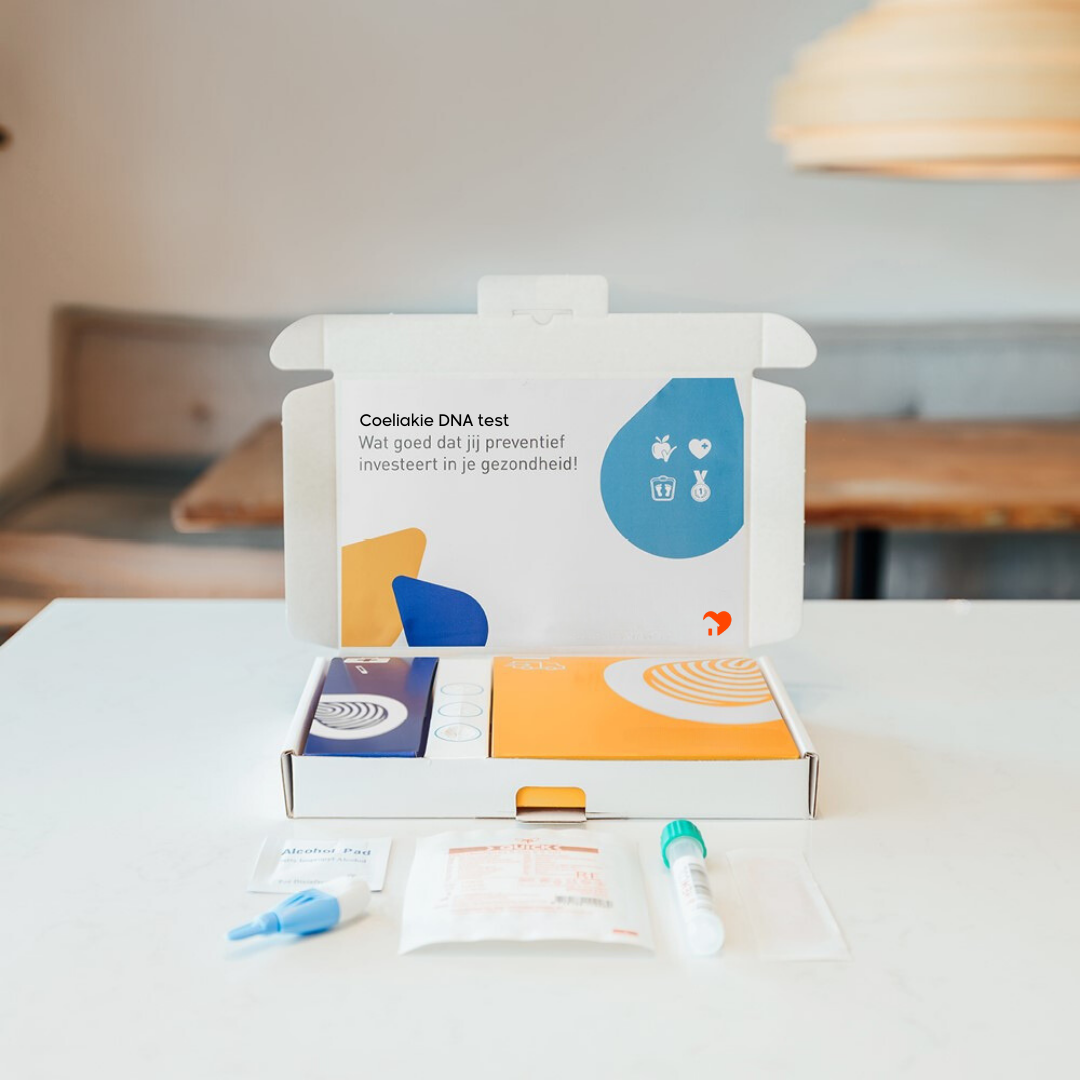Celiac Disease DNA Test
Do you suffer from abdominal pain, irregular bowel movements, and/or bloating?
It is possible that you have celiac disease, also known as gluten sensitivity. Gluten is a mixture of proteins naturally found in certain grains, such as wheat (including spelt), rye, and barley.
Do you recognize these symptoms in your child or yourself?
Celiac disease, or gluten sensitivity, can be ruled out with a simple DNA test.
Want to know more about the symptoms or the test itself? Read the detailed product description.
Determination: Celiac disease (HLA-DQ2 and/or DQ8)
Examination: DNA
Description
Celiac disease is an autoimmune disorder characterized by an intolerance to the protein in gluten. Gluten is found in products such as bread, pasta, and wheat. In this chronic intestinal disease, the immune cells of the intestinal lining are attacked, leading to atrophy (shrinking) of the intestinal lining. When this happens, the intestines cannot properly absorb nutrients, causing symptoms such as fatigue and weight loss.
The cause of celiac disease is influenced by multiple factors, including genetic predisposition. More than 95% of celiac patients carry the HLA-DQ2 and/or DQ8 genes. If a person does not have HLA-DQ2 and/or DQ8, the likelihood of developing celiac disease now or in the future is extremely low. HLA-DQ2DQ8 typing is, therefore, a valuable test for ruling out a celiac disease diagnosis.
The best treatment for this condition is to avoid gluten. Fortunately, there are an increasing number of gluten-free alternatives available in supermarkets.
Symptoms associated with celiac disease include:
- Abdominal pain
- Diarrhea
- Bloating
- Flatulence
- Extremely irregular bowel movements
- Reduced intestinal function, leading to deficiencies in certain nutrients over time:
- Fatigue
- Stunted growth
- Weight loss
- Constipation
- Lack of appetite
- Anemia
- Feeling down or irritable
Do you recognize these symptoms in your child or yourself? Take this test.
How can celiac disease be ruled out?
Celiac disease can be ruled out with a DNA test. This is done using a swab of the cheek lining. The swab is sent to the laboratory, where it is examined for HLA genes.
Possible outcomes of DNA testing:
- Complete absence of HLA-DQ2 and HLA-DQ8: This makes celiac disease or the development of celiac disease highly unlikely.
- Presence of HLA-DQ2 and/or HLA-DQ8: The presence of HLA-DQ2 and/or HLA-DQ8 indicates a potential risk of celiac disease or its development.
Advantages of the ThuisTest DNA Test:
- Simple collection of DNA via a cheek swab.
- The test can be provided in a child-friendly collection kit.
- A painless alternative to the blood test for celiac disease.
Results
The celiac disease test is performed once a week in the laboratory. As a result, it may take a little longer to receive the results (approximately 3 weeks).
For most other tests, results are usually available the same working day after the sample is received at the laboratory.

